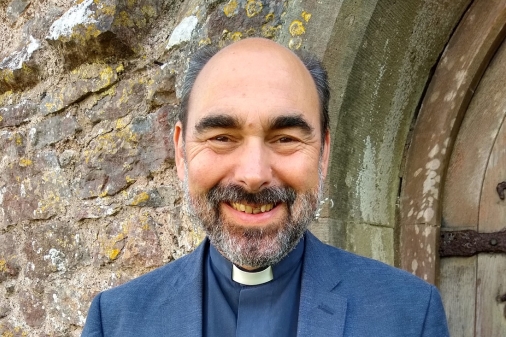
Rev Peter Jones is chairman of the Evangelical Fellowship in the Church in Wales (EFCW). This body with 90 clergy is battling for Anglican orthodoxy after the Church in Wales voted to bless same-sex relationships on 6 September.
An electronic engineer by training, Rev Jones, 56, worked in the industry for 19 years, becoming a Christian in his mid-30s.
He was ordained in the Church in Wales in 2008 and is minister of the Pembroke, Monkton and Lamphey group of churches, becoming Area Dean of the South West Pembrokeshire Local Ministry Area in 2017.
Christian Today spoke to Rev Jones about the impact of the Church in Wales vote and the future for Anglican evangelicals in the Principality.
CT: To what extent was the Church in Wales vote for same-sex blessings a surprise to you?
PJ: Not really a surprise in the end. I thought that the clergy would have just had the numbers to hold back the Bill proposing the change, but it was always going to be very tight.
Many discussions and prayer meetings took place in the run-up to the vote. Through those meetings, we could see many people having different views on what the consequences would be for the Church in Wales.
If the Bill was defeated, then some LGBTQ+ supporters had indicated that they would leave, and the expectation was that the dissenters would come under a great deal of pressure from that side of the debate. What that would look like, we were not sure.
If we lost, our response was going to be determined by the debate itself and what the bishops would do.
As it happens, the debate was very poor in its theological arguments from the pro side, and the way it was handled was very difficult for those who got up to speak against it.
CT: What are the logistics and practicalities for evangelical ministers and their congregations leaving the Church in Wales?
PJ: This is difficult to answer. A few congregations, if they wanted to leave, have strong enough support to be able to set up an alternative church congregation within a relatively short time. For those who do so, an important consideration is to whom they would look for oversight.

It is one of the issues that we are struggling with in the Church in Wales – lack of proper oversight and accountability for the bishops themselves and we have seen the consequences of that in the behaviour of some of the bishops. So, this should be an important thing for any leavers to consider.
In Wales, we have very little money and resources to fall back on for those wanting to leave and the possibility of taking over a church building or buying such a building is almost impossible under the current structures and ownership arrangements.
However, offers of support, obviously prayer, but also financial support are starting to be offered and this would make it much easier. I can see quite a bit of 'tent-making' being needed to be done by leaving clergy for the first few years.
CT: How do you sense lay evangelicals are feeling?
PJ: Each minister finds himself in a different position with respect to their often very mixed congregations. But this issue clearly affects many lay people as well. Most I have spoken to are asking the question, where do I go now? Where is my Anglican home to be if the Church in Wales has moved away from orthodoxy?
As I said, some have already started to leave, but this process is going to unfold over the next few years as individuals work out where their future home is.
CT: Christian Today reported last week that evangelicals in the Church in Wales have been reaching out to Gafcon for support. How can Gafcon practically help Anglican evangelicals on the ground in Wales?
PJ: Gafcon and its Primates particularly have been astonishing in their support. They have issued video messages to support and encourage us, writing letters of support to us and also in some cases to the Bench of Bishops here in Wales. There is an existing structure that is available to those who do choose to leave and there have been some offers of practical help.
But it is early in this process and EFCW is being careful to take time and discern what its role will be in the future. But we are determined that we retain a place of fellowship for Welsh Evangelical Anglicans, regardless of whether they remain or leave the Church in Wales.
CT: What is your message to traditionalists in the Church of England?
PJ: Unity in Christ. Maintain your unity of fellowship in Christ throughout whatever unfolds. Hold fast to the first-order things of our faith. If we are divided, the god of this world will celebrate and stir up further division amongst those who hold fast to the apostolic faith as revealed in Holy Scripture.













